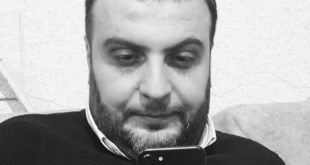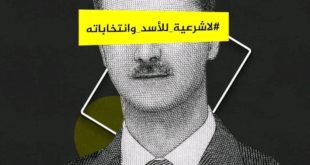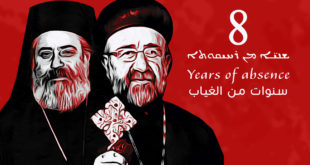ADO-World.org
09-February-2012
DAMASCUS – UN chief Ban Ki-moon accused the Syrian army of appalling brutality, after the deaths of 69 more civilians Wednesday, and said the Arab League was proposing a joint mission to witness the bloodshed.
Fifty deaths were reported in the protest city of Homs where a barrage of gunfire, mortars and shells was launched at dawn and continued all day. State television said a car bomb ripped through the central city, killing and wounding civilians as well as security officers.
Ban said the "appalling brutality" of the government’s artillery assault on the protest city of Homs "is a grim harbinger of worse to come."
Amid a flurry of diplomatic activity, Russian Prime Minister Vladimir Putin insisted any outside intervention to stop the violence would have the destructive effect of "a bull in a china shop."
Ban, however, launched the idea of sending a joint observer mission as he bemoaned the UN Security Council’s failure to agree a resolution on the crisis.
Ban and Arab League secretary general Nabil al-Arabi spoke on Tuesday. The League suspended its monitoring mission to Syria on January 28 because of the mounting violence.
"He informed me that he intends to send the Arab League observer mission back to Syria and asked for UN help," Ban told reporters after briefing a UN Security Council meeting.
"He further suggested that we consider a joint observer mission in Syria, including a joint special envoy."
The UN leader said consultations would be held with the Arab League and UN Security Council members in coming days "before fleshing out the details".
The UN secretary general said he feared the violence would worsen and launched into a new attack on the divided 15-member Security Council. Russia and China again vetoed a Syria resolution on Saturday.
Their move had been "disastrous" for the Syrian people and had only encouraged President Bashar al-Assad to step up his "war" on opponents, Ban said in New York.
The United States joined France and Britain in dismissing Moscow’s efforts to end nearly 11 months of bloodshed in Syria, and condemned the Syrian regime’s brutal crackdown on protesters.
"What is clear is that siding with the Assad regime at this stage will not get Russia anything except for the alienation of the Syrian people," White House spokesman Jay Carney said.
Rami Abdel Rahman, head of the Syrian Observatory for Human Rights, said at least 69 people were killed across the country on Wednesday, including 50 in Homs.
Among those killed in the beleaguered city were three entire families slain overnight by "shabiha" armed regime supporters, he said. The dead included at least three children aged five, seven and 15.
The most intense shelling was in Baba Amr, where at least 23 buildings were completely destroyed, including a home hit by a rocket that killed a little girl, Abdel Rahman said.
Activists in Homs said the widespread shelling was a clear bid to pave the way for a ground assault on Syria’s third city.
"Since dawn the shelling has been extremely intense and they are using rockets and mortars," Omar Shaker, reached by satellite telephone from Beirut, said.
"They have destroyed all infrastructure and bombed water tanks and electricity poles. The humanitarian situation is extremely dire and food is lacking.
"We are trying to set up a field hospital but we have no medical supplies."
Ali Hazouri, a doctor in Baba Amr, said a field hospital had been hit and several physicians were wounded, some critically. "One rescuer from the Red Cross had both legs blown off in the shelling."
As the regime forces tightened their grip, severing power, communications and other supplies, state media reported "terrorists" attacked Homs’ oil refinery.
In southern Syria, troops used heavy gunfire after an army officer and 17 soldiers defected in Daraa province, cradle of the uprising against Assad’s 11 years of iron-fisted rule.
Rights groups estimate more than 6,000 people have died in the regime crackdown on protests since mid-March.
Western and Arab efforts to address the violence have met resistance from Russia, whose foreign minister said after meeting Assad that the Syrian leader was "fully committed" to ending the bloodshed.
Sergei Lavrov pointedly declined to say whether Moscow had asked Assad to quit during their talks in Damascus on Tuesday.
British Prime Minister David Cameron said he had "very little confidence" in the Russian efforts while his Foreign Secretary William Hague spoke to Lavrov by telephone for half an hour to discuss Syria.
And French President Nicholas Sarkozy urged his Russian counterpart to give full support to an Arab League peace plan to persuade Assad to step down.
But Russian President Dmitry Medvedev "called on partners to avoid hasty, unilateral steps," in the Syria crisis, the Kremlin said in a statement following a phone conversation between the two leaders.
Turkey, meanwhile, said it was planning an international conference of regional players and world powers on solving the crisis "as soon as possible."
UN rights chief Navi Pillay said the failed UN Security Council resolution "appears to have fuelled the Syrian government’s readiness to massacre its own people in a bid to crush dissent."
Amnesty International added its voice to Western powers urging Russia to use its influence with Syria "to restrain the Syrian military in Homs and ensure it stops using heavy weaponry in residential areas."
Source: Middle East Online
 Assyrian Democratic Organization ADO
Assyrian Democratic Organization ADO






